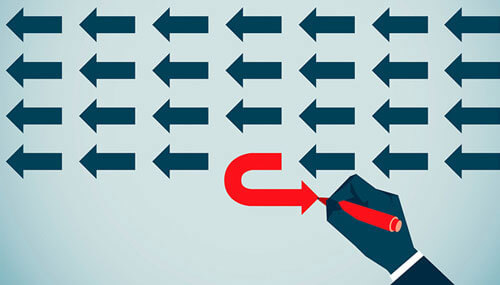Insights
How to Build a Strong Relationship with Your Bank
By Melody Yuan

Your bank is your biggest ally whether you’re a budding entrepreneur or a seasoned business owner.
The value of a good banking relationship can be what makes or breaks your business. This is especially apparent during the ongoing pandemic, when businesses struggling to maintain cash flow are depending on their banks for additional funding like PPP loans and EIDL loans. Those who had a personal relationship with their bank were able to secure funding quickly.
For Doug Evans, chief operating officer of Hirsch Pipe & Supply, the largest independent wholesaler of plumbing supplies in Southern California, reaching out to the right bank was key. “We had applied for a PPP loan through our original lender, but had almost two weeks of radio silence,” he said. Tired of waiting, Evans reached out to East West Bank and was able to get a PPP loan processed within 48 hours.
While the pandemic has limited businesses’ access to capital, bank loans and SBA loans remain strong options. To have a swift and seamless process for funding, business owners must first talk to their banker and have the appropriate documents ready. With both parties on the same page, it will be much easier to receive funding.
Important factors in getting your bank to understand your business
“There are two questions most important to me as a banker,” says Danny Chan, East West Bank vice president and branch manager who has spent more than two decades as a financial expert. “The first is, what is your business model, and how does your business model generate cash flow? The second is, how were your financial metrics and performance for the last three years, and what are your current and projected financials for the next two years based on your current business model?”
Whether you have an existing business or are toying with the idea of starting a business, Chan believes that establishing a relationship with your banker early on is the key to success. The level of specificity that bankers ask for helps business owners solidify a structured outline that goes deeper into financial projections and identifies any vulnerabilities early in the process. While many business owners may shy away from doing this in a business’s early stages, speaking to a banker while building your business’s foundation can help propel it forward.
“Many bankers are actually open to listening to your business plan or model,” he says. “It’s always good to let the banker know your goals and milestones. Although rare, banks do occasionally fund certain startups if you have a special set of skills, knowledge, experience and business model.”
Businesses should also seek out a banker when they reach the growth phase. “When the business hits their goals and milestones, they’re going to need a bank’s assistance with funding or working capital,” says Chan. “Now that you’ve achieved the goals you’ve set, now’s the best opportunity to let your banker know. If your business grew exponentially or landed many big clients, your banker may be able to help you with expansion, working capital, or fixed asset needs.”
Picking the right bank as your financial ally
Determining the right bank depends on your specific business needs but being able to receive personal care and attention when you need it is a good benchmark.
“I always recommend a community bank that will have the time of day to service the customer’s day-to-day needs,” says Chan. “It’s always good to have an actual human you can connect with, rather than rely on a 1-800 number that transfers you to a call center. It still surprises me how many large businesses still rely on different call center representatives to help them solve their financial needs.”
“I think East West Bank is our savior because that’s how we were able to get funding from the PPP loan and keep our doors open,” says Elmy Bermejo, owner of Tommy’s Mexican Restaurant. “It was a desperate time, and I didn’t want to lay off any workers. So being able to secure the PPP funding within two weeks meant a lot.”
Ultimately, Chan recommends finding a bank that is suitable to the size of your business. “There aren’t any one-size-fits-all bankers, but each banker has a certain set of skills, knowledge and experience,” says Chan.
For startups, the ideal banker may be an account representative who can quickly find the right bank deposit products. “Once your business grows to about $25 million or $100 million in sales, you might need an experienced relationship manager or portfolio manager to handle your business needs,” continues Chan. “And one day when the owner becomes a Fortune 500 company, they might outgrow that manager’s skills and knowledge and require an executive or someone in the C-level to handle their relationship.”

Documents to have ready for your lender
Having a written business plan helps a bank understand your business’s high-level purpose and functionality, but you need other documents to supplement the plan.
“Prior to COVID-19, some of the best ways for bankers to understand a borrower’s business was to tour their facility,” says Chan. “While it may be harder to do that now, we will still ask strategic questions to understand the organization’s ebbs and flow.”
At the bare minimum, you need to provide documents that spell out the past, current and projected financials. Additional documents such as income tax returns, business credit reports and even collateral are all helpful. “Without financial metrics, it’s very difficult for the bank to analyze the viability of the business and their ability to repay loans,” says Chan.
To make sure that your business has the best shot at securing funding, be sure to have at least these 10 items ready:
- Business plan
- Proof of business registration
- Employer Identification Number (EIN)
- Business licenses and permits
- Financial statements
- Bank statements
- Tax returns
- Accounts receivable aging and accounts payable aging
- Details of any other loans
- Proof of collateral
The biggest concerns lenders see from business owners
While each business practice, industry and region may present a different set of challenges, one thing that Chan sees across the board is concern over working capital. While Chan assures that many businesses reach out to him for positive reasons like exponential growth and profitability, most reach out over concerns on having enough working capital to sustain growth.
As uncomfortable as it may be to borrow money and bet against the business, Chan believes that letting go of the stigma and trusting the banker will allow businesses to breathe a little easier. “Banks are here to help businesses grow. The last thing we want to do is scam or take a business away,” says Chan.
Some of Chan’s longest tenured clients have been with him for more than a decade. “Luckily as their businesses grew, my skills, knowledge and experience also grew with them,” he says. “If I hadn’t improved on my own skills, my clients would have outgrown me and needed someone else to service their business needs.”
Throughout his more than 20 years of financial experience, Chan has seen multiple market volatilities and businesses that have both succeeded and failed. “At the end of the day, we’re all human,” says Chan, “and we want to see our customers either succeed or walk away without shame. When you respect your client, they respect you. That trust is important to make both the client and the bank whole.”
Subscribe to the Reach Further Newsletter
Get inspiring stories in your inbox every month.

